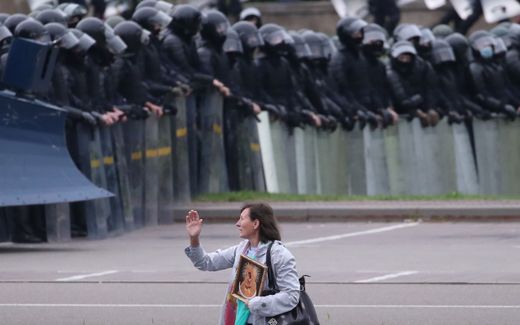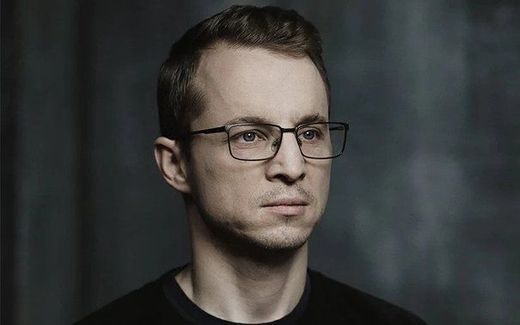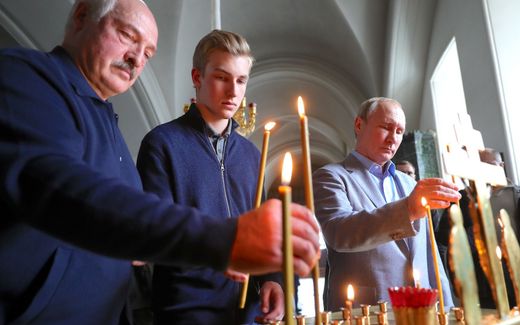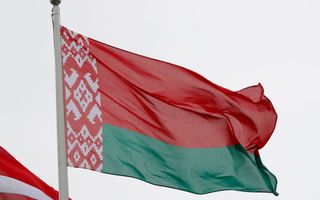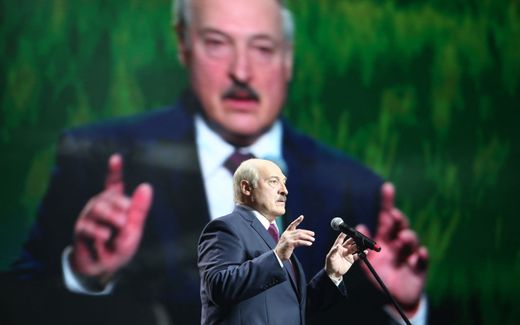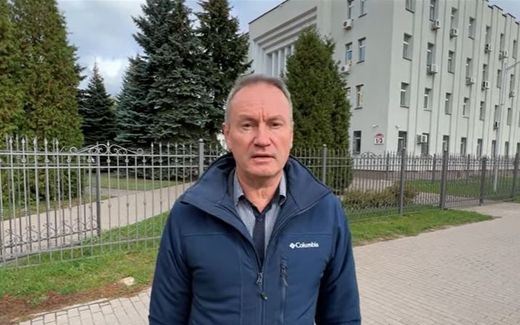What should a Christian say in the face of dictators?
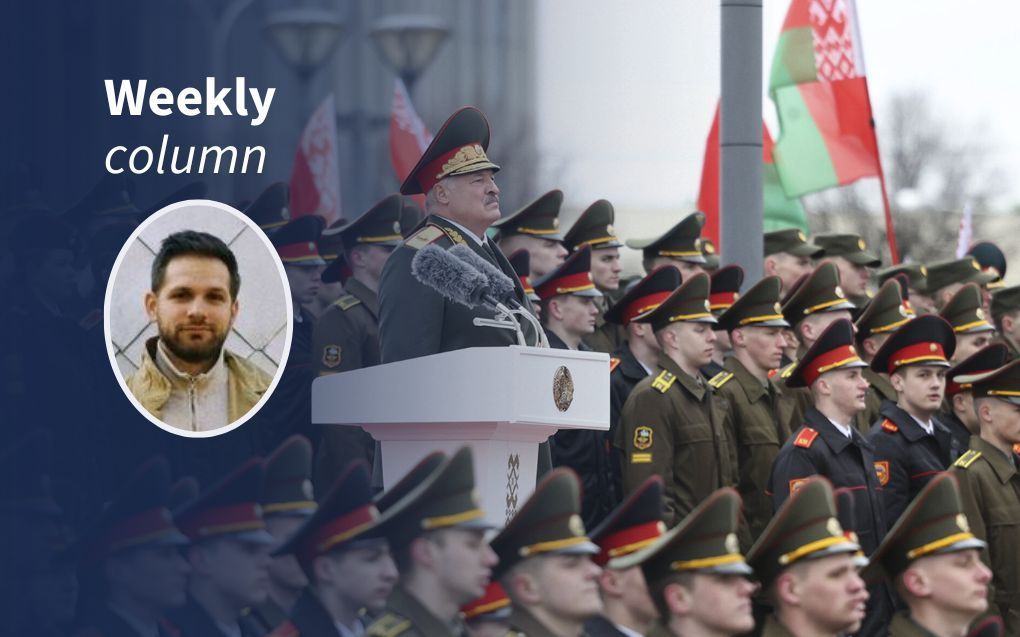
Belarussian President Alexander Lukashenko participates in a ceremony with military servicemen following his inauguration. This is Lukashenko's seventh term in office. Photo Canva.com, EPA, Belarus President Press Service Handout
Christian Life
Imagine that you have the opportunity to go to a religious meeting with the Belarusian president Lukashenko. What would you say if you had five minutes to speak in that service? Zmicier Chviedaruk from Belarus gives some thoughts.
Stay up to date with Christian news in Europe? Sign up for CNE's newsletter.
Perhaps you would be afraid of the tyrant from Eastern Europe who has been in power for 31 years. After all, he keeps his opponents in strict imprisonment or exiled abroad. Many have not been heard from prison for more than a year.
You can imagine that such a person does not expect a fair and equal conversation. Moreover, he believes he can deal with anyone who dares to give him more authority. You may recall that not long ago, he shut down and physically destroyed the New Life Evangelical Church for being "too outspoken".
In addition, our country has a mandatory church re-registration program. All churches are required to submit documents and pass a loyalty test. Otherwise, they will be banned and can be prosecuted for holding services. This was the case in our country during the Soviet era.
Approval
Back to the opportunity to speak to Lukashenko. Would you use it to put a dish of flattery and gratitude on the table, as Gabriel Garcia Marquez wrote about in The Autumn of the Patriarch? To keep a low profile and try to gain the approval of a tyrant who claims to be the master of fate? What if you get approval and influence?
Round table
Why did I ask you such a strange question? Recently, in Minsk, the capital of Belarus, Alexander Lukashenko organised a "round table" with the heads of Christian denominations and representatives of other religions. While the Orthodox Church has long since joined the political regime, evangelicals have been able to proclaim vital truths.
What was the conversation about? The leaders of the Baptist, Pentecostal, and Charismatic movements thanked Lukashenko with one voice for the freedom of religion, the absence of religious repression, and, of course, for the peaceful sky above their heads. Even though Russian missiles can be placed again on our country's territory, Putin's new military bases will soon appear due to the new state agreements.
Baptist bishop Leonid Mekhovich and Pentecostal bishop Leonid Biryuk unanimously said that their churches usually have large families and help alcoholics and drug addicts—in general, they are engaged in active social work. It was as if the church existed for this work of mercy.
You will be surprised, but in general, they did not mention Christ and faith in the presence of Lukashenko. Perhaps it is necessary not to disrupt these dangerous authorities and survive this difficult period.
The Gospel
However, historical Christianity and biblical history paint a slightly different picture of encounters with dictators. Have you ever wondered how much the evangelical preaching of the New Testament influenced the political establishment?
Can you imagine Peter and Paul preaching without witnessing to the local authorities of Israel? To the imperial representatives? To the Greek city councils? And finally, to the ruler of the Roman Empire himself, who considered himself a son of the gods?
While the apostolic period certainly stands out in redemptive history, it teaches us to faithfully proclaim the Gospel wherever the opportunity presents itself and not to diminish its power by speaking only of "social activism". I imagine the apostles would have spoken of caring for widows and the maimed instead of the commissioned witness of the risen and returning Christ.
Throughout history, Paul, Philip, Stephen, and numerous other brothers and sisters became faithful witnesses for Christ in the face of hardship and danger. The Lord gave them the courage to make difficult moral decisions. They paid the price of faith for the greatest treasure God has given us. This built up the Church and strengthened the belief of many. But it seems that our generation in Belarus has a different idea of Christian witness and is more afraid of authority than of God.
Certainly, it would be foolish to face Lukashenko with the example of John Knox, spouting memorised words about obeying God and resisting tyrants. However, Scripture teaches church ministers to leave a faithful witness before various people, not only to alcoholics and drug addicts but also to those who can instil fear in us and harm our bodies.
I have not written this column to censure the representatives of the churches mentioned above. Instead, I want to sketch a small picture of the relations between the state and the Church in our country and of evangelism itself in Belarus.
The question before us is how much we believe in God's omnipotence, providence, union with Christ, and the unbroken covenant of grace and power of the Gospel, even when our hearts tremble with fear and are bound with anxiety about the possible consequences of a life in faith.
Finally, I would like to leave open the question of what you, as a Christian, would say today to the terrible and ruthless tyrant who tortures and restricts the church. Because of his madness, 10 million people in Eastern Europe are suffering.
Brothers and sisters, please pray for the church in Belarus.
Related Articles


